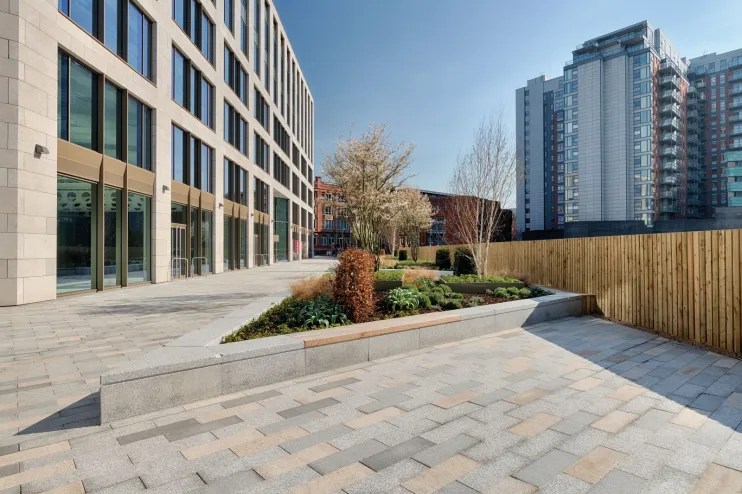Housing slump continues as Marshalls cost-cutting fails to halt revenue slide

Lower housing demand bites Marshalls as cost-saving measures fail to save revenues dropping across the board.
In a trading update, published today, the block paving company said actions to save around £11m annually, including factory mothballing, shift slashes and business re-shuffling couldn’t prevent year-on-year group revenues falling by seven per cent to £671m.
Landscape product revenues fell 18 per cent, while revenue from the company’s building and roofing divisions also dropped off to the tune of 12 and nine per cent respectively.
“Notwithstanding the anticipated short-term challenges, the Board remains confident that the long-term market growth drivers and a focus on executing key strategic initiatives, will underpin a material improvement in profitability when markets recover,” the trading update said.
Marshalls said it remains encouraged by the “more positive inflation trends” which should support positive movement for the group’s markets.
The company added that it is taking a second look at its spending plans and land disposals as a possible way to generate more cash in the future.
Marshalls’s full-year results for the year ending 31 December 2023 are expected on 18 March.
The company’s slump is indicative of a wider malaise across the house-building industry as raw material costs remain high and demand for new houses has continued to hover around the lowest levels on record.
Last week, it was reported that UK housebuilder Persimmon’s new home completions were down by a third, and its cash more than cut in half in 2023.
At the tail end of last year, Travis Perkins, one of the UK’s biggest builders’ merchants, sought to stabilise its operations by cutting jobs across the country.
Today the company said that these headcount reductions led to annualised savings of around £35m but resulted in a one-off restructuring charge of around £15m in FY23.
Data released this week also shows that London is not immune to the problem, as house prices in the capital cratered six per cent in the 12 months to November – the biggest fall for property in more than a decade.